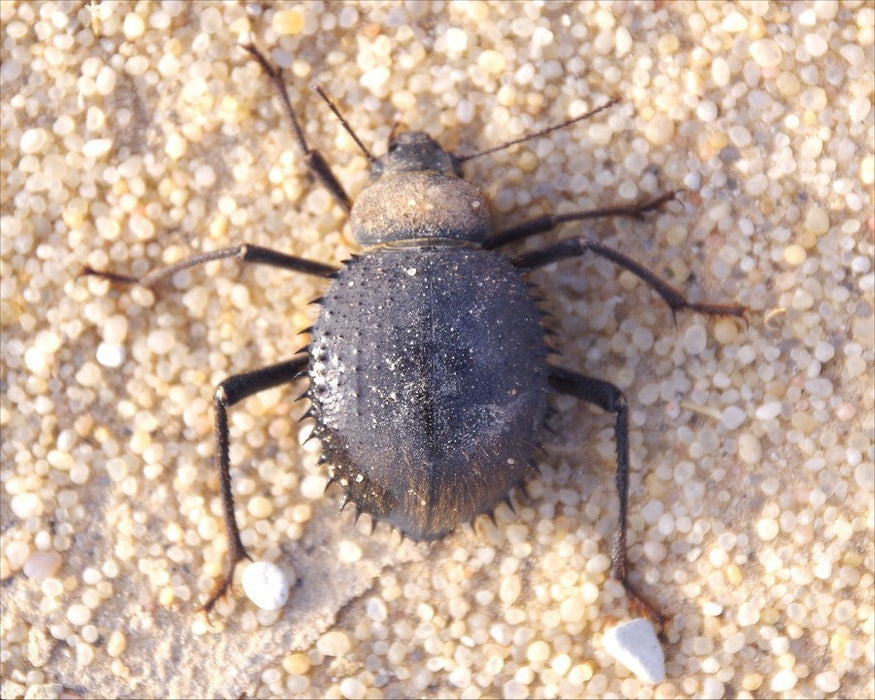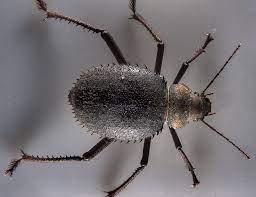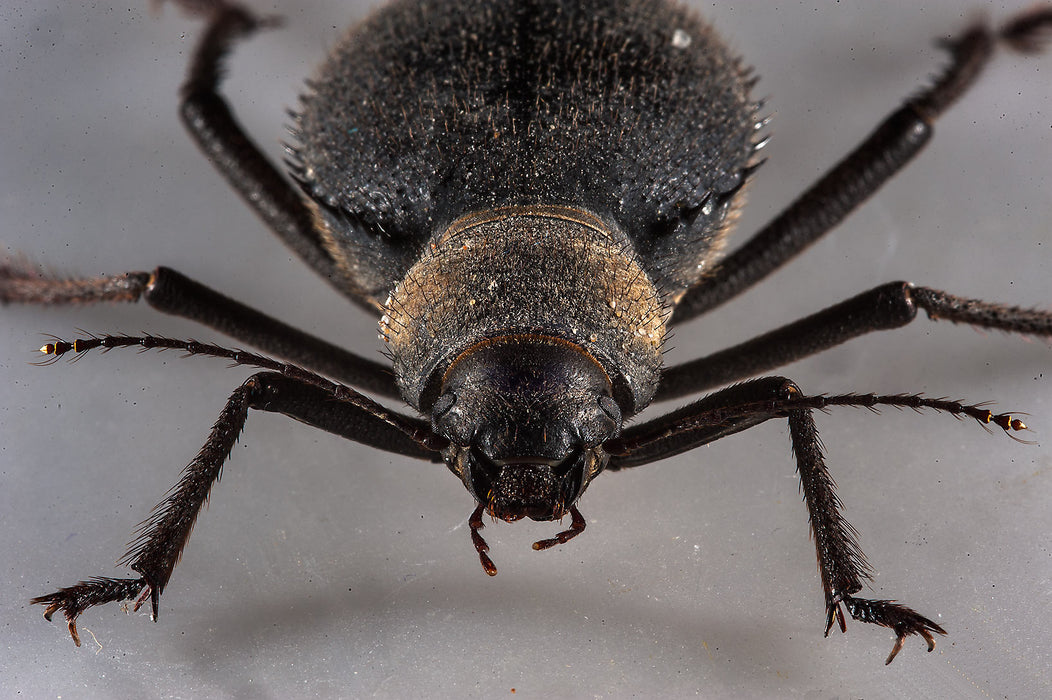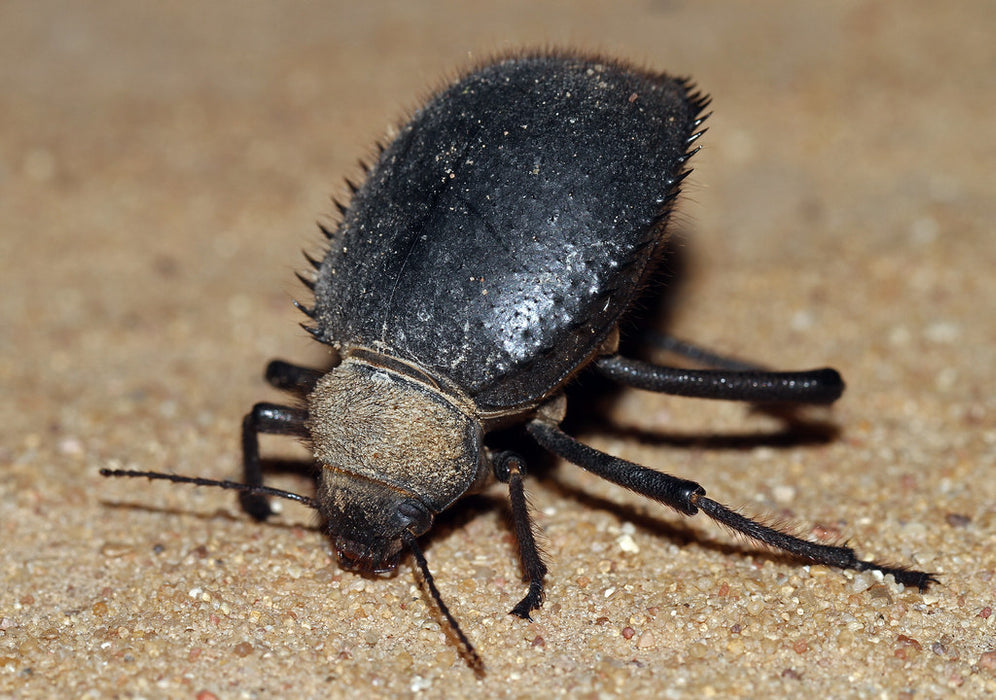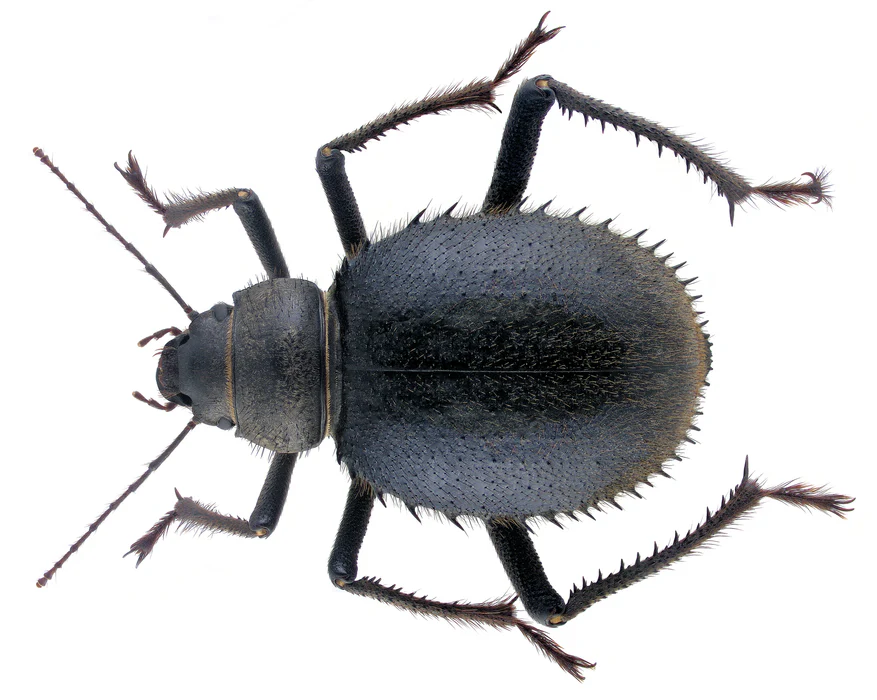
Urchin Beetle | Prionotheca coronata
Live Animals Are Click and Collect Only
Please note that we do not ship live animals. You can order online and collect in store.
The Urchin Beetle, scientifically named Prionotheca coronata, is a unique and less commonly known beetle species, notable for its distinctive appearance. This beetle is part of the Scarabaeidae family and is characterized by its robust body and protruding spines or projections, which give it an appearance somewhat reminiscent of a sea urchin. The coloration of the Urchin Beetle typically ranges from dark browns to black, allowing it to blend into its natural habitat. This species, while not as widely recognized as others in the beetle community, presents an interesting study for entomologists and insect enthusiasts due to its unusual morphology and behavior.
Origin:
Prionotheca coronata is typically found in specific regions, likely preferring habitats that offer adequate food sources and shelter. The exact geographical range of this species might vary, but it's typically associated with environments that support a diversity of insect life.
Temperature:
The ideal temperature for the Urchin Beetle would depend on its native habitat. However, most beetles thrive in temperate conditions, with moderate temperatures and humidity levels.
Housing:
In captivity, the habitat for an Urchin Beetle should include a substrate that mimics its natural environment, along with hiding places and possibly some vegetation. The enclosure should be secure to prevent escapes and well-ventilated to maintain a healthy living space.
Feeding:
The diet of Prionotheca coronata likely consists of plant material and possibly decaying organic matter, as is common with many scarab beetles. In captivity, they might be fed a variety of fruits, vegetables, and specialized insect food.
Lifespan:
The lifespan of the Urchin Beetle in captivity can vary, but most beetle species have a life cycle that spans from several months to a couple of years, depending on the environmental conditions and care provided.
Behavior and Personality:
Urchin Beetles, like many beetle species, are likely to be most active during the night (nocturnal) and may exhibit interesting behaviors related to their unique morphology. Their spiny appearance might also be a defensive mechanism to deter predators.
Please note
We don't ship live animals. You can order online and choose click and collect and we will hold it for you.

